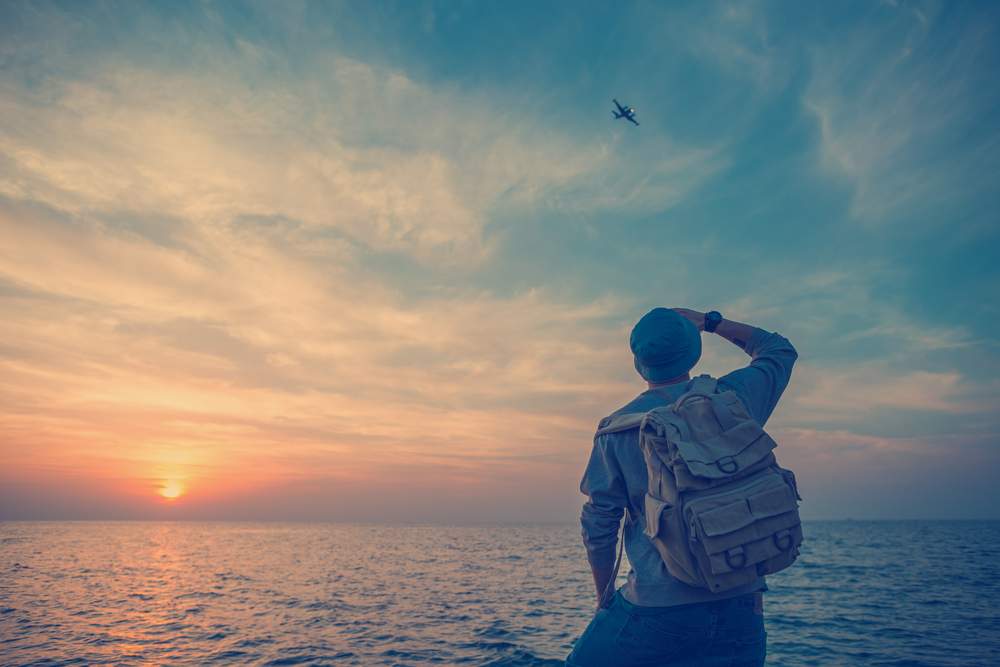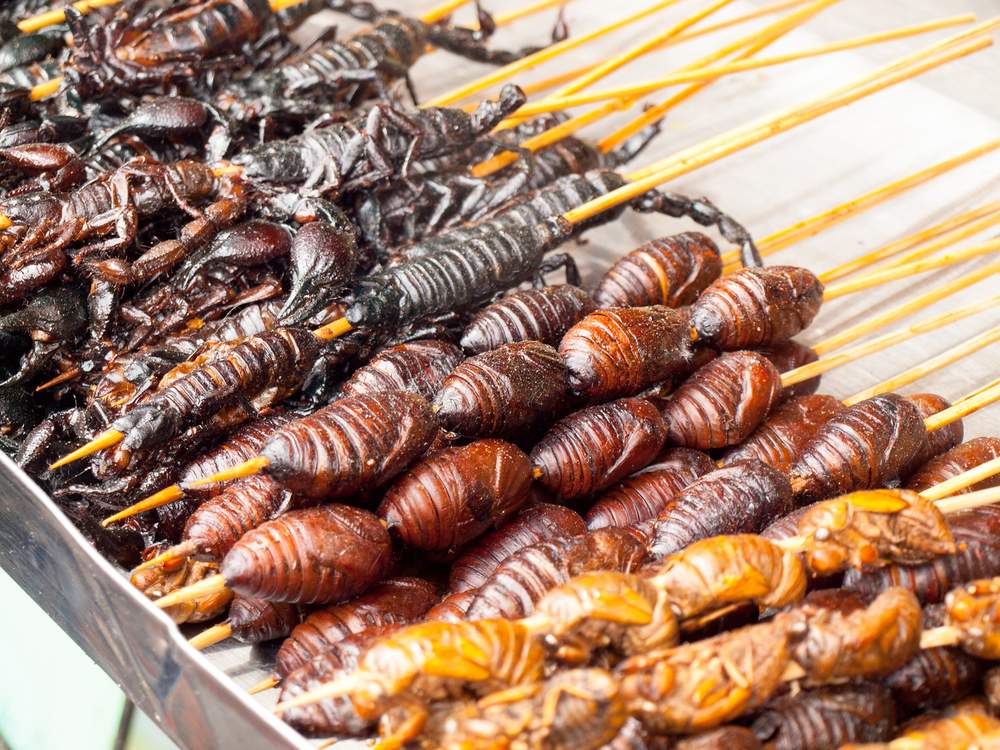Becoming an indie traveler doesn’t happen overnight. I had to spend a lot of time warming up to it.
I felt safe in gated resorts in Jamaica and Mexico with my boyfriend, and in student accommodation in Melbourne, but the thought of going off alone into the world without any definite end-date sounded absurd. I didn’t realize that short international vacations and my semester of study abroad were mere stepping stones for my becoming an adventurous long-term backpacker.
I was used to planning out my life.
One year ago I was likely to be found flipping pages forward in my daily planner. I was planning out the details of the next week, month, and year to come. I was thinking about where I’d go to graduate school, how much money I’d earn as a Speech Therapist, who I’d marry, what flavor our cake would be, and where we’d retire fifty years later. Daydreaming was fun at times, but the reality was that all this planning was making me sick with stress.
The more I tried to predict my future, the more afraid I felt of it not turning out perfectly, and the more anxious and fearful I became.
When I finished my final semester of college on an exchange in Melbourne, I was awestruck by the amount of freedom I suddenly had. I had money in the bank, no obligations back home, and a newfound comfort of being far from home. I wanted to see more of Australia, and thoughts of visiting Asia crossed my mind. I felt so young and free; I was tired of planning so much and certain that living spontaneously and taking risks would improve my life.
The day I left to travel I swallowed my fear and vowed never to plan more than necessary.
I realized what a risk I was taking in traveling this way. I didn’t realize how rewarding this risk would be, or how many more great risks I’d take along the way.
Plan Nothing

The greatest risk I took was traveling without an itinerary. When I left, I had only a one-way train ticket to Adelaide, South Australia. I knew that was my first stop, but I had no idea where I’d go from there. At first, it was challenging not to know where I was going. People back home often asked me what my plans were, and it felt awkward to say, “I don’t know!”
I enjoyed surprising myself with the places I’d end up. I had the freedom to stay as long as it was interesting, leave when I felt ready, and take last minute opportunities.
After a week in Adelaide, I went on Gumtree.com and responded to an ad for a work-exchange job at an Aboriginal Cultural Center in the outback. They wrote back and said I could come immediately. The very next day I was driving into the desert on a rideshare with a new friend.
Nothing really needs to be booked ahead. Depending on the season, hostel accommodation is always accessible at the last minute. If it’s not, there are other options, like Couchsurfing, which I think is more adventurous anyway. At one point in my travels, all the hostels were booked, and I couldn’t find a Couchsurfing host. For a moment I thought, “I shouldn’t take such risks on accommodation.”
I panicked, wondering “Where am I going to sleep tonight?”
I ended up sleeping on the beach with new friends for a few nights. It seemed crazy at first, but it turned out to be so much fun hiding from security officers by night and waking up to the sounds of the ocean. Then I met a sailor and stayed on his boat for a week; he even invited me to sail to Indonesia with him. If I had booked a hostel in Darwin three weeks earlier, I wouldn’t have had any of those memorable experiences.
Travel Alone

Many people, especially women, are afraid to travel independently because they fear feeling unsafe or lonely.
At first traveling alone made me nervous, but I quickly realized it actually made me become a safer, more cautious traveler.
When I traveled with other people in the past, I often became inattentive and expected them to be my eyes and ears. Being on my own heightened my awareness of my surroundings, which not only kept me safe but lead me to absorb more of the experience. Today I feel fearless and empowered to travel independently anywhere in the world.
Sometimes what we are afraid of is exactly what we need to do in order to grow.
As for loneliness, it’s true. Traveling solo can feel painfully isolating at times. I was uncomfortable with it at first, but I pushed myself to appreciate being alone. Somewhere between Australia and Thailand I realized that I am my own best friend, which means I’m never truly alone. It was the perfect opportunity for me to connect with myself and learn to enjoy my own company. After a while, I felt a new sense of self-love. It was like being on an extended honeymoon with myself.
Now that I’m home in New York, I realize how often I’m alone here in “real life,” whether sitting on the subway or laying in bed at night. I feel a new sense of peace in those solitary moments.
Talk to Strangers

The truth is, you’re never really alone while traveling. You are surrounded by potential friends. In hostels, on buses, or in cafes you’ll be surrounded by other travelers. Talk to them.
Being born and bred in New York City, it’s not my culture to talk to “strangers” or to be particularly friendly. Maybe you’re like me, or maybe you’re shy; either way, your long-term travel is the perfect time to let go of this identity you’ve assigned yourself and start being friendly, outgoing, and talkative.
After some time on the road, I realized how easy it was to make new friends with other travelers. You can identify them easily by their disheveled and wide-eyed looks in any country and their physical appearance in some. All you have to do is say “Hi. Where are you from?” and quickly you’ll find yourselves bonding over the experience of being a foreigner.
Many of us have seen “Taken,” and of course we need to be cautious about who we trust as we travel. I believe in using your intuition. If you get a bad feeling about someone, avoid them.
But don’t let fear stop you from making friends while traveling. You might miss out on some meaningful connections.
Connecting with other travelers helps you feel a sense of community and support in an otherwise lonely and often emotionally challenging experience. Also, as you meet other travelers, you build an international network of friends, which means you have a place to stay all over the world. I know that as a result of my travels I have at least one couch to crash on in each country of Western Europe.
Meet the Locals

Meeting locals should also be at the top of your risks-to-take list. Depending on the country and culture, this may feel feasible to paralyzing.
In Australia, the locals were English-speaking and notorious for their friendliness, so it wasn’t such a stretch for me to spark conversation with the barista serving my long black. In Thailand, I faced a greater challenge with a language barrier and major cultural differences. By then I knew the value of connecting with locals, so I learned enough Thai to have a friendly conversation. As a result, I made many Thai friends who I learned more Thai language from.
It might feel uncomfortable pushing yourself to meet locals, but it’s an invaluable and fulfilling travel experience. You’ll learn more about the culture and feel a greater sense of belonging.
Get Lost

Even if you make many friends, wherever you go will remain a foreign place. The possibility of getting lost may worry you, making you cling to maps or habitually ask for directions. I’ve never been great with maps or directions, and I noticed that I was wasting time bothering with either; they just confused me more. Sometimes we’re better off without them.
Where are you so desperate to get to, anyway? You’re a traveler; your days are blessed with infinite time and flexibility.
Some of my best days while traveling were spent meandering city streets aimlessly. I recommend purposefully losing yourself in a new place. Leave your map and your smart phone in your room and have a wander.
The point is not to discover something interesting, though you might. Try to enjoy each step of the journey, noticing your surroundings. Experiencing the sights, smells, and sounds of a typical day on a local street of a foreign place is often more compelling than any tourist attraction your map might lead you to.
Don’t worry about finding your way back. Trust your own sense of direction to wander back. Trust that the people around you will help if you need it. Trust the universe to keep you safe, and it will. If you develop this attitude, you’ll never feel afraid of being lost.
Once you’ve been lost on purpose, doing it by mistake doesn’t feel as bad.
One night in Chiang Mai, a tuk tuk driver couldn’t understand my English or Thai when I tried to tell him the address of my Couchsurfing host’s home. He dropped me off on an unfamiliar street in the pouring rain. I wandered up and down alleys alone, soaking wet, for about half an hour before I found the house. Throughout the experience I enjoyed the free shower, laughed at myself, and trusted that things would work out one way or another.
Taste Everything

If you’re an unadventurous eater, pushing yourself to try local cuisine might be one of the best risks you can take. Tasting the local food allows you to experience a culture in a uniquely sensory way. If you’re spending time with locals, sharing their traditional food can be a real bonding experience. One of my favorite memories of Thailand is of cooking over a fire inside an earthen hut with hill-tribe people, the smells of coconut milk, curry, and Thai basil drifting about.
You might be surprised to find you like something exotic. If not, at least it will make a great story to tell.
Maybe you’re a vegetarian, and you’ve found yourself in a highly carnivorous culture; it might be worth it to break your own rules for the once-in-a-lifetime chance to taste that traditional lamb dish. A good rule while traveling might be “taste everything at least once.”
In Thailand, I met a lot of travelers who only ate in “farang” places and cringed as they watched me relish durian fruit from a plastic bag I bought off the street. Often, they told me they were afraid of getting sick from foods their bodies wouldn’t recognize. I understand this fear and find it reasonable for short-term travelers who have jobs to return to the next week. But long-term or RTW travelers have enough time that spending a few days sick isn’t such a loss in the grand scheme. It might even be worth it if it helps you toughen your stomach and adapt to local ingredients, so you can enjoy them throughout the rest of your time there.
Nothing risked, nothing gained
My risk list doesn’t include jumping out of planes or off 600-foot bridges. I didn’t have the guts or drive to do those things, but if you do, please be safe, insured, and jump away! The type of risks I’ve suggested are of a different nature but take just as much bravery. With practice, these risks transform you inside-out as a traveler and person, letting you experience the world in an authentic way.
To learn more about long-term, round the world travel, check out the following articles and resources:
- Check out our round the world planning section to plan your big adventure
- Read 11 Reasons to Stop Dreaming and Start Planning your RTW Trip
- Read Escape the Rat Race
- Read Why You Should Forgo the American Dream and Let Travel Transform Your Life
- Read Challenge Yourself and Do Hard Things
